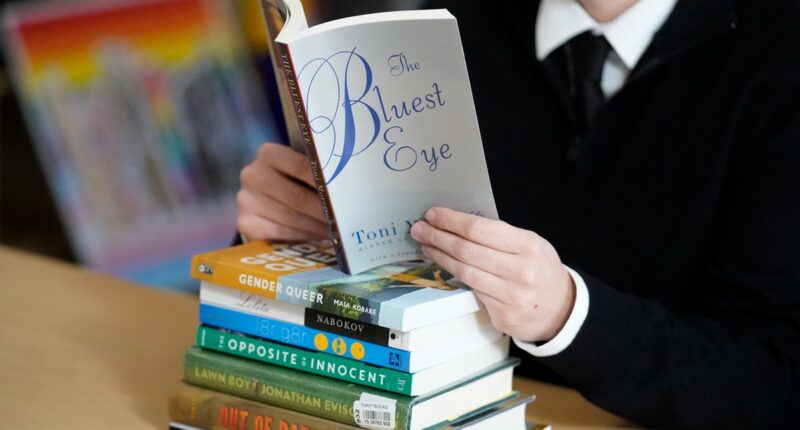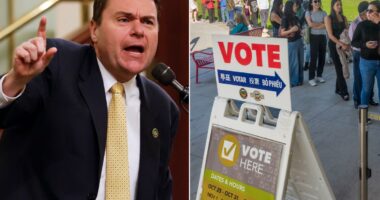Share this @internewscast.com

U.S. District Judge Carlos Mendoza concentrated on the portion of the law aimed at restricting access to reading materials that “describe sexual conduct.”
TALLAHASSEE, Fla. — In favoring publishers and authors, a federal judge on Wednesday found a significant part of a 2023 Florida law resulting in book removals from school libraries to be “overbroad and unconstitutional.”
U.S. District Judge Carlos Mendoza made this ruling in a 50-page document related to a First Amendment lawsuit initiated the previous year against State Board of Education members and the school boards in Orange and Volusia counties, specifically examining the law’s section aiming to limit reading materials “describing sexual conduct.”
The Orlando-based judge observed that the law “fails to assess the work for any comprehensive value” and “does not define the level of detail needed to ‘describe sexual conduct.’”
“According to the plaintiffs, the statute’s prohibitions are ambiguous,” Mendoza noted. “It may disallow content saying characters ‘spent the night together’ or ‘made love.’ It’s uncertain. Defendants haven’t clarified the statute’s intended operation.”
He explained that the Florida Department of Education advised educators to “err on the side of caution,” leading to book removals out of concern that school districts might face repercussions.
“But even a reading of the statute that excludes allusions to sexual activity nevertheless requires the removal of any material that contains even a single sentence that is prohibited by the statute — with no consideration of its overall value,” Mendoza wrote.
Six publishing companies, The Authors Guild, five authors and two parents filed the lawsuit in August 2024 amid controversies in many areas of the state about decisions by school districts to remove books from library shelves or restrict access.
The law (HB 1069) set up a process in which parents could object to reading material that is “pornographic” or “depicts or describes sexual conduct.” It required books that received such objections to be removed within five days and to remain unavailable until the objections were resolved.
In fighting the lawsuit, the state’s attorneys argued, in part, that the selection of library books is “government speech” and not subject to the First Amendment. But Mendoza rejected that argument Wednesday, saying “the removal of library books without consideration of their overall value cannot be expressive activity amounting to government speech.”
“A blanket content-based prohibition on materials, rather than one based on individualized curation, hardly expresses any intentional government message at all,” Mendoza wrote. “Slapping the label of government speech on book removals only serves to stifle the disfavored viewpoints.”
The judge also cited the role of parental objections in driving decisions to remove books.
“To be sure, parents have the right to ‘direct the upbringing and education of children,’ but the government cannot repackage their speech and pass it off as its own,” he wrote, partially quoting a U.S. Supreme Court precedent.
Mendoza also approved interpreting the word “pornographic” in the law as being “synonymous with ‘harmful to minors’ under Florida law.”
The lawsuit cited removals from library shelves of numerous books, such as “The Bluest Eye” by Toni Morrison and “Love in the Time of Cholera” by Gabriel Garcia Marquez. Both of those authors were awarded the Nobel Prize in Literature for their novels and other work.
The plaintiffs in the case are publishing companies Penguin Random House LLC, Hachette Book Group, Inc., HarperCollins Publishers LLC, Macmillan Publishing Group, LLC, Simon & Schuster, LLC and Sourcebooks LLC; The Authors Guild; authors Julia Alvarez, John Green, Laurie Halse Anderson, Jodi Picoult and Angie Thomas; and parents Heidi Kellogg and Judith Anne Hayes.
This story was first published by News Service of Florida.

















